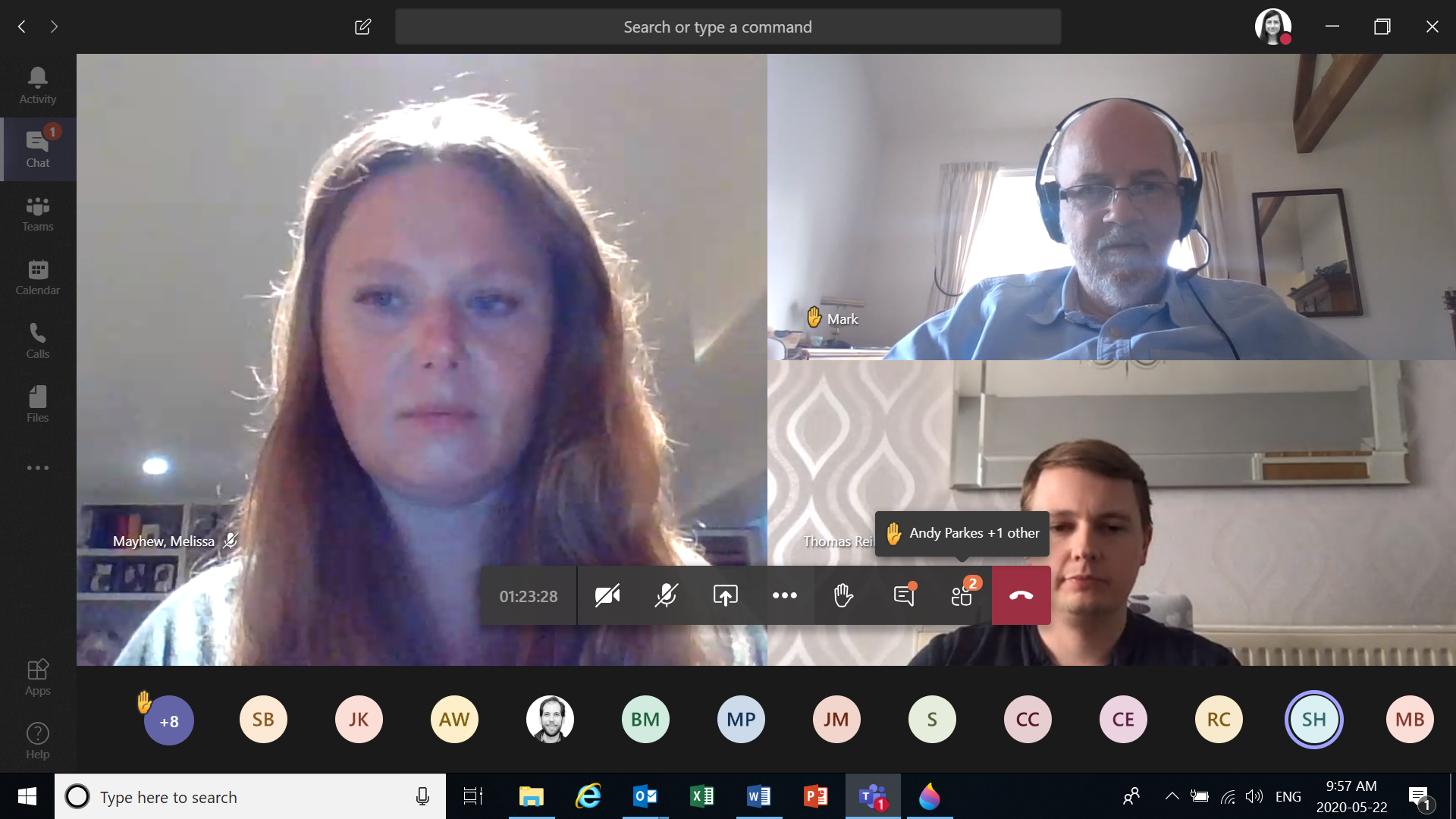Before the global pandemic, the Nuclear Waste Management Organization (NWMO) in Canada and Radioactive Waste Management (RWM) in the United Kingdom had planned to co-chair a technical session at the IAIA20 Conference (International Association for Impact Assessment) in May. When the conference was postponed until next year due to COVID-19, the organizations still found a way to exchange information about the site selection process and scientific data management through a videoconference in May.
“This virtual connection enables us to continue to share knowledge and strengthen ties with our sister organizations,” said Melissa Mayhew, Senior Environmental Scientist at the NWMO, who chaired the meeting.
More than 20 staff members in various disciplines from both organizations participated in the meeting, including environmental assessment, engagement, geoscience and engineering. Cross-functional international collaboration helps to ensure we are sharing and benefitting from best practices and processes in the long-term management of used nuclear fuel.
The meeting explored areas of common interest with lively discussion. Canada is further along the path of implementing its plan for the long-term management of used nuclear fuel, so members from RWM were particularly keen to learn more about the approach, best practices and lessons learned.
Mike Brophy, Head of Community Engagement at RWM, explained how the UK is creating a learning development program for communities, drawing on examples from Canada and Sweden.
“Communities are at the heart of the siting process. We need a suitable site and a willing community,” said Mr. Brophy, summing up the UK’s approach. The NWMO uses a similar approach.
The NWMO and RWM also delved into scientific data management. Discussion covered understanding reporting needs, capturing data needed and keeping it organized to facilitate submissions. Christiaan Piller, Geoscience Database Administrator and GIS Analyst at the NWMO, highlighted the importance of a system that produces “auditable documentation that is traceable, secure, and readily available to approved staff.”
At the meeting’s conclusion, participants expressed a desire to continue these conversations both as a group and one-on-one.
“I was really pleased with the level of interest and participation in the learning exchange. The feedback I’ve had from RWM participants has been universally positive, with everyone seeing real value in sharing our knowledge and experience,” said Mark Gough, Environmental Assessments Manager at RWM.

